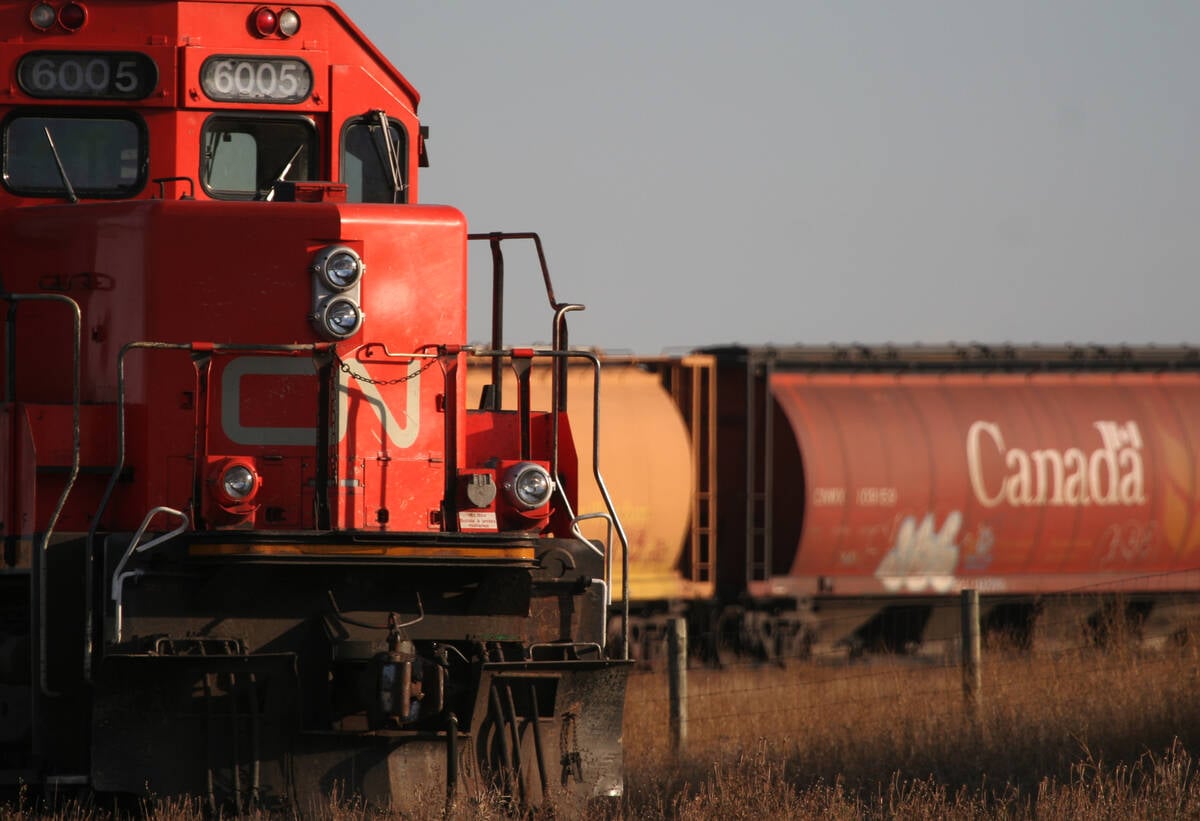Renewable diesel plant proposed by FCL and AGT still in early design stages, waiting for Clean Fuel Standards to be set
REGINA — One of the proponents of a renewable fuel project in Regina says the regulatory environment must be clear before it goes ahead.
Murad Al-Katib, who heads AGT Foods, said the front-end engineering and design for the facility planned by AGT and Federated Co-operatives Ltd. to produce both protein concentrates and renewable fuel from canola is nearing completion.
Other stories from the Food, Fuel, Fertilizer Global Summit:
Costs have been going up, and he said the two companies have to make sure they’ve got everything right. They haven’t released an updated projected cost.
Read Also

Working groups established to address challenges in the containerized and bulk movement of commodities
CN is working with the pulse and special crops sector on resolving challenges in shipping those commodities.
“We believe in the project. We’ve been working very hard to secure the federal government’s policy framework,” he said after a presentation at the Saskatchewan Chamber of Commerce’s Food, Fuel and Fertilizer conference.
“I mean, we need clarity on that Clean Fuel Standard. We need clarity on what the government’s position is going to be.”
Al-Katib said the government has been clear about things such as batteries for electric vehicles but not on renewable fuel.
“We’re definitely pushing that agenda. There’s some voices that need to continue to be very loud, and we’re doing it,” he said.
The integrated agricultural complex was announced in 2022 at a then-estimated cost of $2 billion. It includes a $360 million canola crush facility supplying about half of the feedstock for a 15,000-barrel-per-day renewable diesel plant.
The crush plant was to be operating before the targeted 2027 date for the renewable diesel plant. AGT Foods would mix canola protein from the crush plant with pulse protein to create food for people and fish.
FCL holds a 51 percent share of the joint venture and AGT holds the remainder.
Al-Katib likens Saskatchewan canola fields to the oil fields of Saudi Arabia.
“Only every August and September we harvest the new oilfield and 20 million tonnes of canola will be able to be transformed,” he said, through hydrogen technology that creates a molecule identical to diesel.
Al-Katib said while consumers and smart capital drive projects such as this, the regulatory environment is key.
Discussion with Ottawa continues on how the project could be supported. He said the prospect of a general election disrupting policy development exists, but AGT and FCL are continuing to make the argument that this one project would be a major player in decarbonizing western Canadian agriculture.
He added that all aspects of the project have to be in place before it proceeds.
“We’re talking about a multibillion-dollar project here, so you don’t make those decisions without having everything complete. It’s not just a roll-the-dice.”
Still, he said it will be done.
He described the project as generational and with the potential to transform the province.
“Our opportunity is to be a highly competitive, high-quality, sustainable low carbon intensity producer,” he said, noting the clean, green economy is coming.
He predicted that 70-million-tonne crops will be the new normal but cautioned that transportation and other infrastructure have to be able to accommodate that production.
Australia has a 50-year national rolling infrastructure plan,but in Canada plans change with election cycles.
“I think that this country has lost track of the fact that we can’t ram everything through the Port of Vancouver all in four months’ time every year,” said Al-Katib, making the case to use the Great Lakes, Prince Rupert and even Churchill.
He predicted more shipping by containers.
AGT is now the world’s largest agricultural container shipper with more than 80,000 moving to 100 countries.
The company also owns the public intermodal terminal on the Canadian National Railway line on Regina’s east side.
“In 2023, we did over 40,000 lifts in southern Saskatchewan, in our third year of operation. That shows you what kind of volume there is in our economy that is looking for export markets.”
















